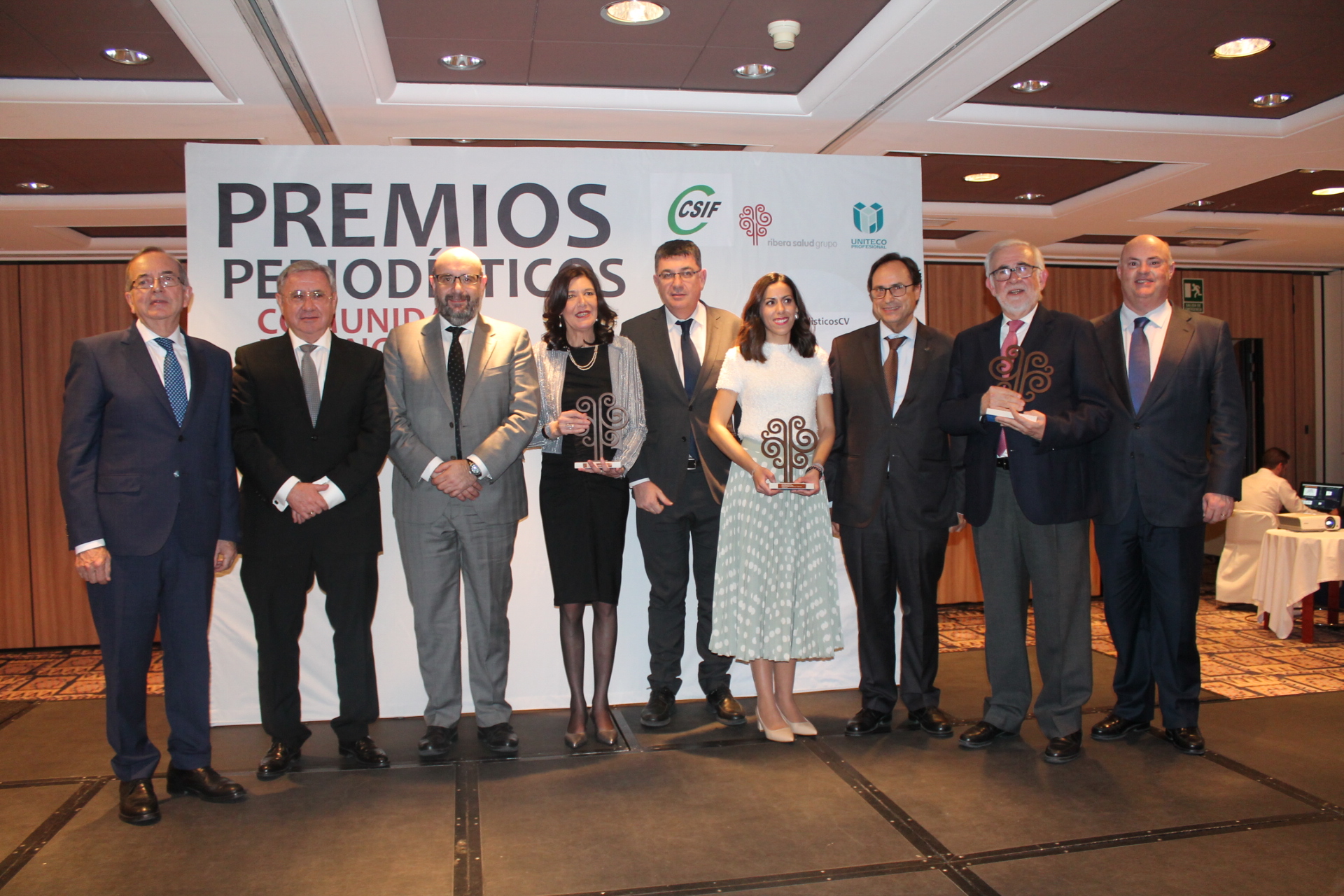The Valencian Community Journalistic Awards were presented last night. It was an event organised by CSIF (The Confederation of Independent Trade Unions) and an event that we have supported since its very first edition. It’s a very special night on which media professionals from the three provinces come together to pay tribute to the award winners, which this year were Rosana Belenguer, Ana Talens and Francisco Perez Puche, and take stock of the state of their profession. In my speech this year I also wanted to share my thoughts, especially after having seen Spielberg’s latest film, The Post. It’s an amazing production that makes you reflect on good journalistic practices and on the role of journalism in an advanced society such as ours. The message that I wanted to share with them, a message that I also want to share here with you, in my blog, was as follows:
«Good evening everyone and thank you very much to Daniel for having allowed Ribera Salud to be a part of this Valencian journalism event ever since it was first held. This year we are celebrating the nineth edition of this now fully established event in which we will be graced by the presence of Rosana Belenguer, Ana Talens and Francisco Perez Puche. A big well done to the three of them for their more than deserved recognition! Congratulations!
It isn’t my intention to give lessons about journalism tonight as I’m not a professional when it comes to telling stories but, as an avid reader, observer and follower of the astounding transformation that your sector is experiencing, if you would allow me, I would like to share my thoughts regarding your profession.
Journalism is a public service and a jounalist has to ensure that.
I think our society will always need serious journalism, journalism that is on top of commercial and political interests. Brave journalism, that creates conflict. Critical journalism, that searches for the truth and doesn’t conform.
I believe in journalism that checks information, contrasts it and, only then, publishes it. Responsible journalism. With the speed that new technologies demand, events are sometimes written without context, without critique, without analysis, without questioning anything. Objective journalism whose quality relies not on the support or the prestige of the newspaper, but on the intention of who writes, of who works, of who supervises the work done by editors, reporters and photographers.
In essence, ethical journalism.
On the other hand, I think our society will reject easy and comfortable journalism that prefers to receive a grant to ensure its independence.
Journalism that backs down in the face of authority, that doesn’t ask a thousand and one impertinent questions, journalism that doesn’t interfere.
I think our society will reject journalism that isn’t capable of withstanding and overcoming pressure, that is merely a channel of communication for authorities.
Ultimately, passive, irresponsible and devious journalism, even more so when we consider that this profession contributes to changing the world, to improving it. My dear friends, being a journalist is a great responsibility.
Unfortunately, through experience, I know that it is difficult to take risks and defend what is right even though this can sometimes mean you having to make some changes. If it helps at all, I always say: “Do what you have to do and what will be will be”.
I’d like to conclude this reflection by once again congratulating Rosana, Ana and Francisco and everyone in the organisation who has made it possible for us to be with you all once again on this wonderful evening.
Thank you very much».

